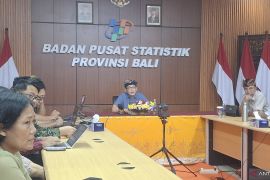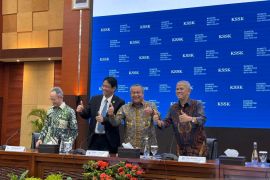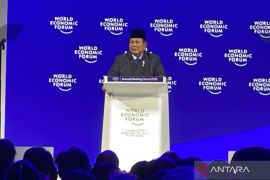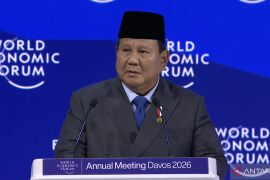The central bank`s governor, Darmin Nasution, said here on Thursday that the country`s economy is expected to grow 6.4 percent in the second quarter, or slightly lower than the projected 6.5 percent for the first quarter of 2012.
Also, the economy is projected to grow between 6.3 and 6.7 percent in 2012, and to 6.4 and 6.8 percent in 2013.
The continued high economic growth in the midst of a slowing global economy occurs because of strong domestic demand and consumption, as well as increasing investment, according to officials.
Further, the balance of risks for 2012 shows growth tends declining due to the impact of slowing global economic growth and a new government policy on fuel prices, if no stimulus is given, especially through a fiscal policy.
He said all economic sectors are projected to still grow quite high, with the highest growth recorded in the transportation and communication sector, followed by trade, hotel and restaurant, and construction sectors.
Also, the Indonesia Balance of Payment in 2012 is predicted to record a surplus smaller than that of the previous year.
The drop in the surplus is especially caused by the current account deficit, which is larger due to slowing exports caused by lower demand, while imports grow due to strong domestic demand and high oil consumption.
Additionally, capital and financial transactions are predicted to still record a surplus, due to direct flows of investment and portfolio.
The country`s foreign exchange reserves, though the end of March 2012, were recorded at US$110.5 billion, which was equal to 6.1 months of imports and payment of foreign debts.
The country`s rupiah currency, meanwhile, weakened in the first quarter by 0.83 point-to-point to Rp9,144 against the US dollar, or an average 1.03 percent to Rp9,066 quarter-to-quarter.
The depreciation was followed by volatility that was higher than in the previous quarter. Pressures on the rupiah came from, among others, portfolio adjustments by foreign investors due to global sentiment and expectations for a higher domestic inflation and increasing demand for foreign currencies due to increasing imports, including imports of oil and gas for domestic consumption.
With the stabilization efforts taken by Bank Indonesia, the rupiah exchange had generally remained stable.(*)
Editor: Heru Purwanto
Copyright © ANTARA 2012











